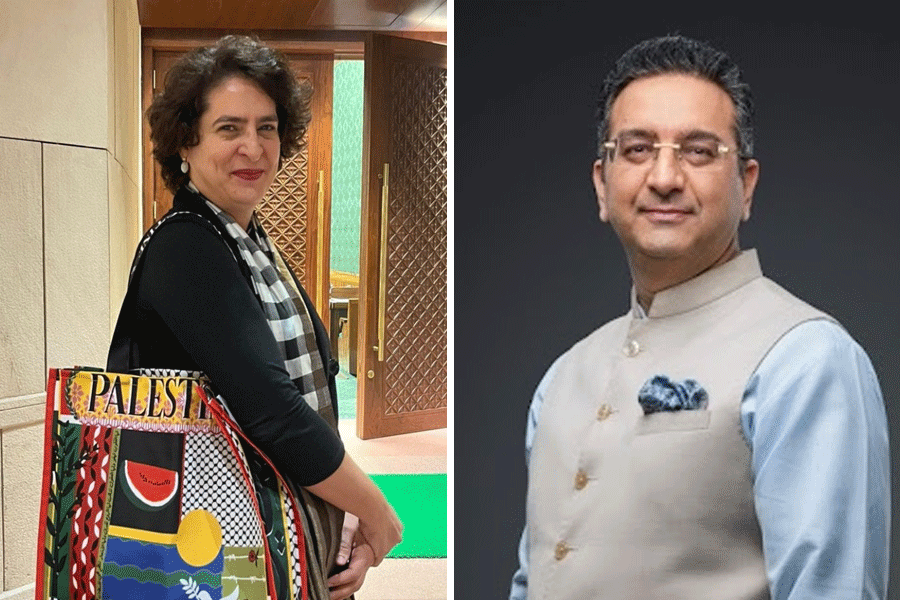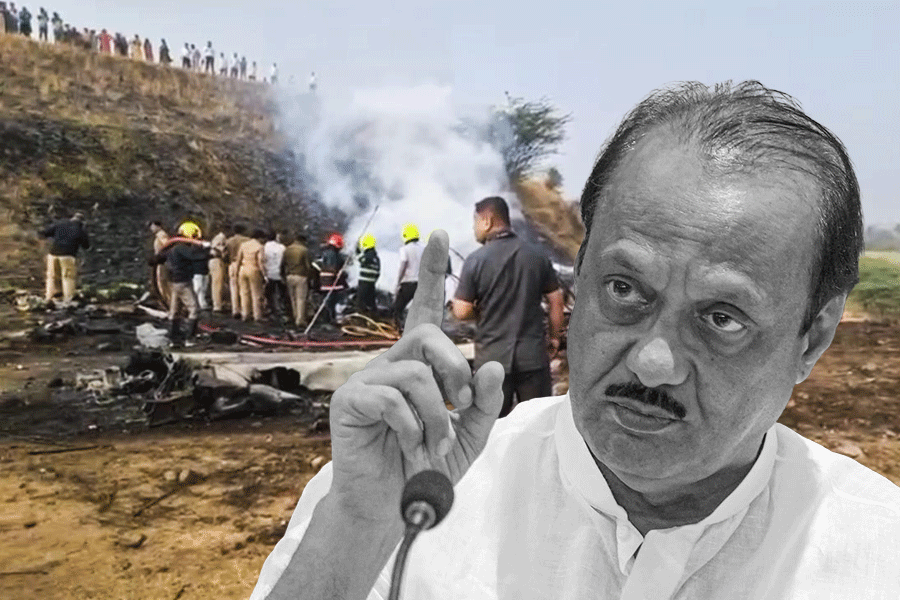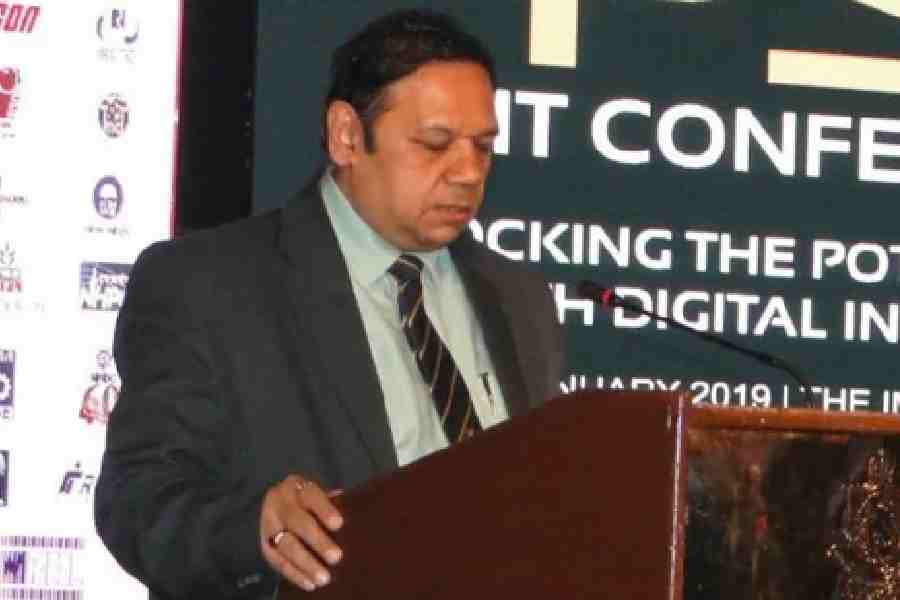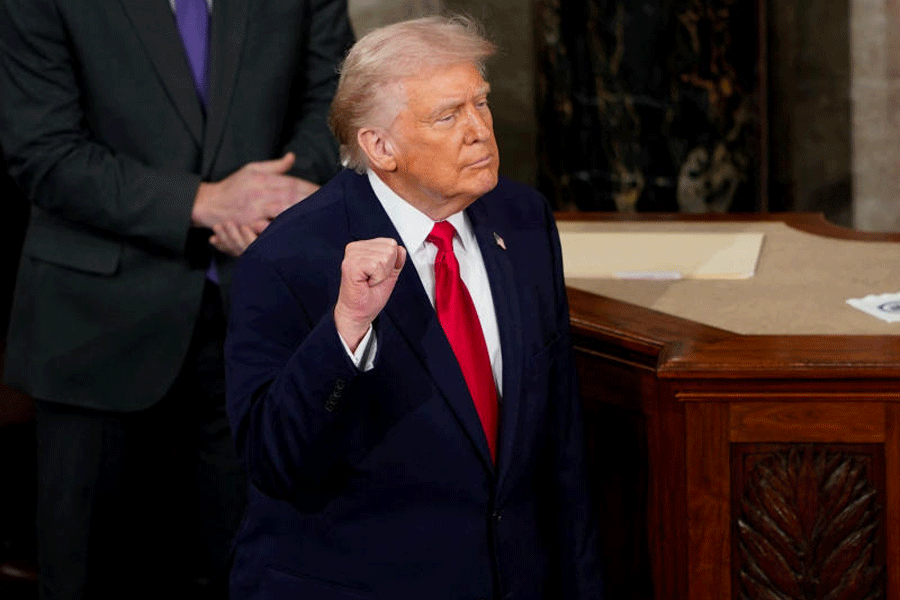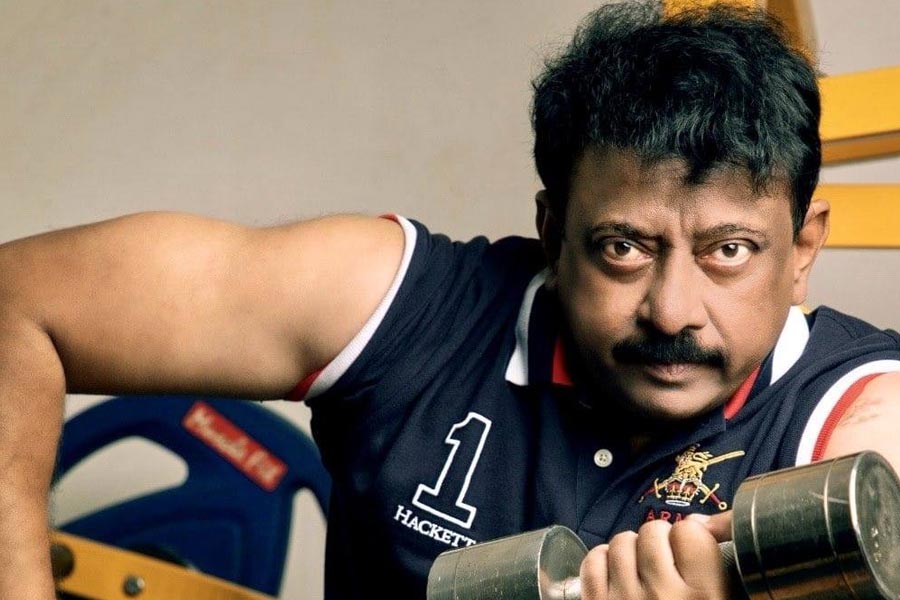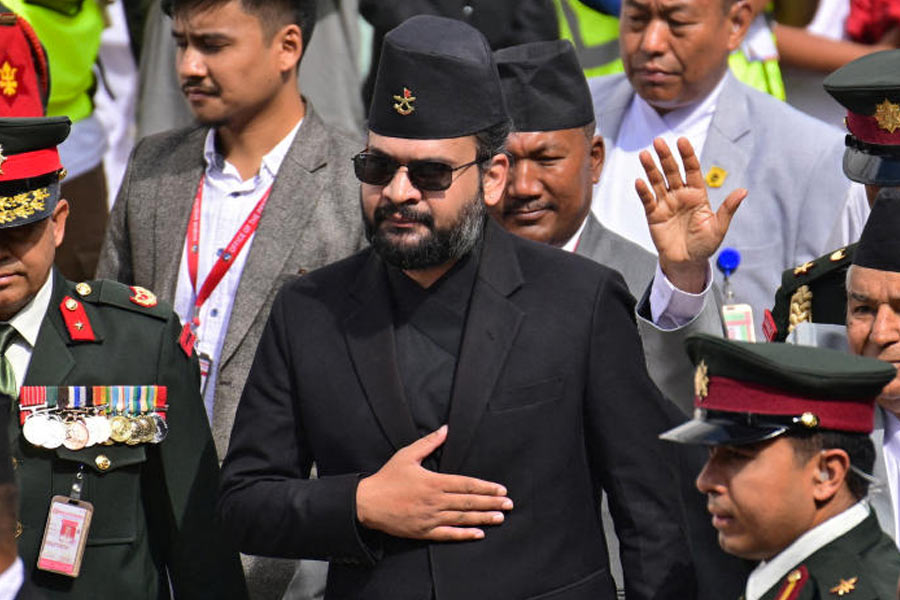.jpg)
Shyam Benegal is gearing up for battle. The much awarded director plans to shoot a mini-series on wars fought by India in the 20th century.
Little hillocks of newly purchased books on the subject - the covers still smell fresh - lie on the floor of his office in Tardeo Road in south Mumbai. Two cartons of hard covers are yet to be opened.
"I have to read all of them and more for the series I am planning for television," the director says.
Shooting is slated to start by the end of the year. The series, which may be aired on Rajya Sabha TV, calls for a huge budget and on-location shoots, for which he needs permission from the defence ministry.
"It will be a grand affair and the cast will be huge. But before I go ahead with it I need to put all the details in place," he points out, comfortably ensconced in his antique chair, looking dapper in a light green cotton shirt and brown chinos.
A spry 81, Benegal, clearly, likes to move from one project to another. For the last few months, he has been engaged in a mammoth exercise - reviewing the concept of censorship as the head of a committee appointed to look into the workings of the Central Board of Film Certification.
"The censor board has shifted from political censorship during the British era to more of social censorship now, essentially dealing with the depiction of sex and excessive violence. But there's no place for censorship in a democratic country. You can't interfere with the creative interpretation of a filmmaker," he states.
However, there's a catch. Benegal, often held up as a die-hard liberal in the world of Hindi cinema, has no problems with Section 5B(1) of the Cinematograph Act, 1952. The section states: "A film shall not be certified for public exhibition if... the film or any part of it is against the interests of (the sovereignty and integrity of India) the security of the State, friendly relations with foreign states, public order, decency or morality, or involves defamation or contempt of court or is likely to incite the commission of any offence."
Nothing wrong with this, the director of films such as Ankur (1973), Nishant (1975) and Manthan (1976) holds. "This section needs no change. If you say India needs to be cut up or Kashmir should be taken away, your film won't be released. Which country will allow anti-national views, tell me? It goes against the sovereignty of the country. The Constitution gives us the parameters for issuing certification of films and that's completely transparent," he emphasises.
The Benegal Committee, whose members include film directors Rakeysh Om Prakash Mehra and Goutam Ghose, and adman Piyush Pandey, has submitted a draft report to the Centre. It has recommended five categories of certification (up from the present three), on the basis of age and maturity. The categories are Universal, UA12+, UA15+, Adult (A) and Adult with Caution (AC).
"We are trying to discourage the making of such films that require an AC certification by recommending that they not be released in halls in residential neighbourhoods, thereby reducing the number of people who may watch them," he says.
But isn't that censorship, too? What if his films with adult themes - Bhumika (1977) and Mandi (1983), for instance - had not been released in halls in residential areas?
"Some films can be crass and in poor taste and the views may not be acceptable to others. We are not stopping you from making films, but we are telling the people what kind of a film it is," he states.
The final report has to be submitted to the government before June 20. For the present, the committee is dealing with two other issues - the use of psychotropic substances in films and the way animals are treated in shoots. "An anti-tobacco disclaimer on the screen while the film is playing breaks the continuity of a film. There are many other ways of dealing with this - we are discussing all that to come up with an alternative solution," he says.
All that is fine, but when do we see a feature film by the director, whose debut film Ankur famously won 46 awards in India and abroad? His last feature film - Well Done Abba - was released six years ago, two years after Welcome to Sajjanpur.
"I have three or four projects lying on the shelf, which I will lay my hands on once I finish work for this mini-series," he says. Among them are Chamki Chameli, the story of a beautiful gypsy girl, a film on Noor Inayat Khan, a British spy, and a film based on the Geet Govinda. "But such films need good budgets and since they are niche subjects, it's difficult to raise funds. I am waiting for the right time," he says.
With his series on wars, Benegal will be going back to television - which has been quite a favourite medium of his. He has made some memorable series including Bharat Ek Khoj (1988), Katha Sagar (1986) and Yatra (1986). In 2014, Rajya Sabha TV aired his series on the Indian Constitution, called Samvidhan.
The Dada Saheb Phalke award winner has also played multiple roles in a career spanning more than five decades. He was the director of the National Film Development Corporation, and twice served as the chairman of the Film and Television Institute of India (FTII).
In fact, when students came out in protest against the appointment of actor Gajendra Chauhan as the director of FTII last year, Chauhan and the National Democratic Alliance (NDA) government had approached Benegal for advice.
"I recommended a meeting between the students and Chauhan to iron out the differences without any drama and fear of violence. These students are here to advance their careers and are professionals. They won't create a ruckus unless they are unhappy. Chauhan managed that much later, but it was probably too little and too late," he reflects.
I look at the wall - on which hang sketches done by the Russian director Sergei Eisenstein, and a letter written by Jawaharlal Nehru - and point out that Benegal seems to be getting along well with the NDA government.
"I have certain kinds of views about the manner in which we function, but I am not a professional politician," he replies. "You have to support what is right - it can be sometimes left of centre and sometimes centre, but chances of it being right of centre are not good since it might not be totally inclusive," he says.
How does he rate Narendra Modi? "At the moment the Bharatiya Janata Party seems to be doing quite well. Modi appears to be in control of things as Prime Minister and it's only been two years. The well-being of the country is the most important thing and he is capable of taking care of that," he replies.
His films have exposed the spectre of caste, so I bring up the suicide of Dalit student Rohith Vemula in Hyderabad, the city in which Benegal grew up.
"It was terrible. Have we really ended the caste system? Things are not changing as quickly as we would like them to change. These are societal conventions and traditions going on for centuries. If you expect an overnight change, it's not possible. But you have to go on chipping away at the wall," he says.
Benegal gets up. It's lunchtime, and he is particular about his meal timings. His day at office usually begins around 10 in the morning and he wraps up by 5 or 6 in the evening.
He is a voracious reader, but these days mostly ends up reading books related to his projects. Films keep him entertained when he is not working, he says. He last watched Masaan, and enjoyed it.
"The young fellows are making marvellous pictures and also discovering wonderful actors in the process," he adds.
Clearly, there's work to be done. Benegal has to ensure that his report on censorship is submitted to the government on time. And he has his wartime reading to do. "What keeps me going is work," he says.

.jpg)
